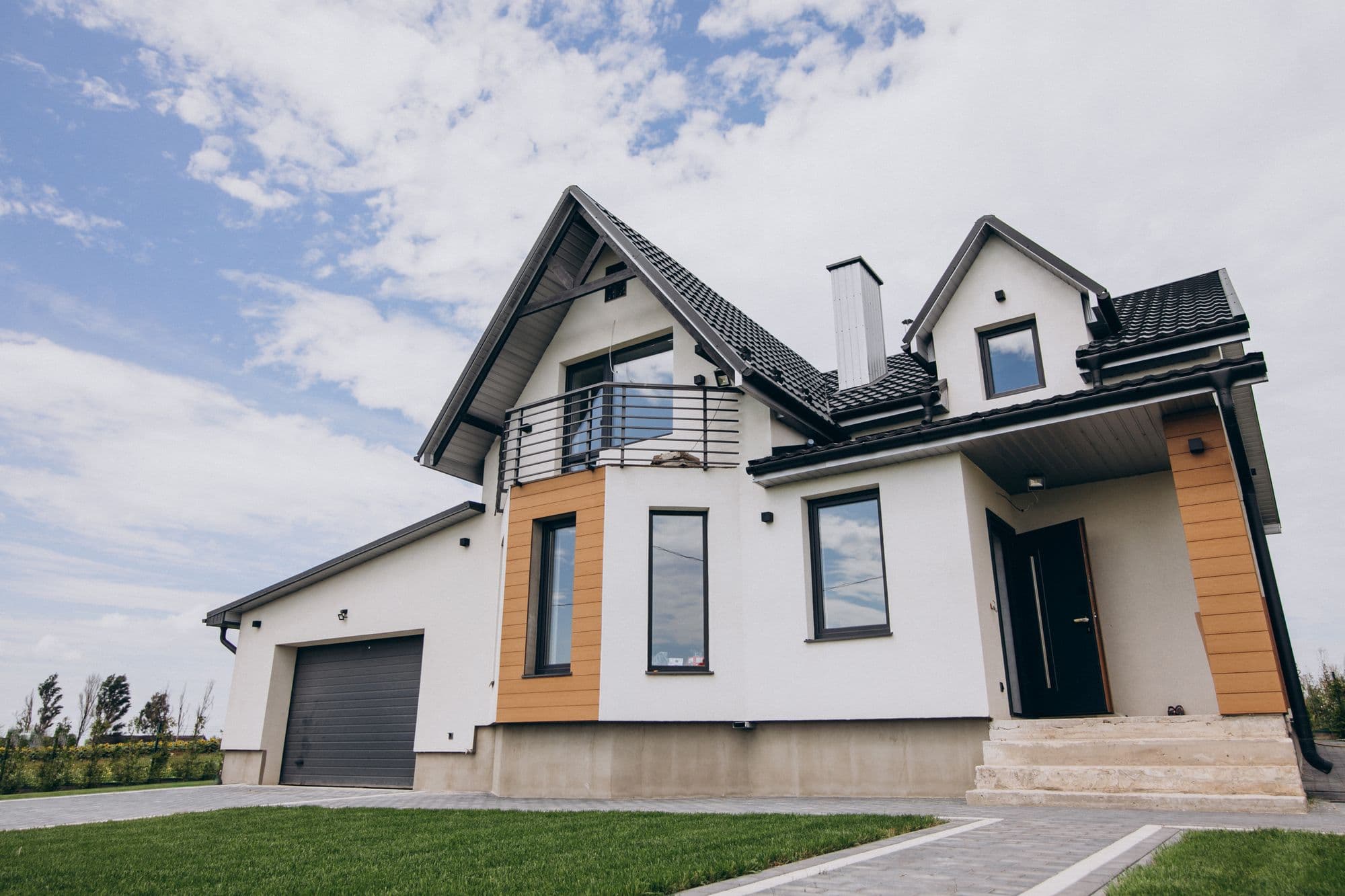Welcome to our comprehensive guide on maximizing the ROI (Return on Investment) of your home improvement projects. Whether you're a seasoned homeowner or a first-time buyer, understanding the financial implications of your upgrade decisions is crucial to ensuring lasting value.
Home improvements can significantly enhance the comfort, functionality, and aesthetic appeal of your home. However, not all upgrades are created equal, and it's essential to make financially sound decisions that yield a good return on your investment. This article aims to provide you with valuable insights into the world of home improvement ROI. We will explore the factors that influence ROI, like location, type of improvement, and current market trends, and provide actionable tips on how to make smart upgrade decisions.
Join us as we dive into the exciting journey of home improvement, helping you to create a home that not only reflects your style but also makes financial sense. Let's get started!
The Importance of ROI in Home Improvement
When planning home upgrades, it's tempting to focus solely on the immediate benefits - a modernized kitchen, a spacious outdoor patio, or a luxurious bathroom. But it's essential to look beyond the present and consider the long-term financial impact of these improvements. This is where the concept of 'home improvement ROI' comes into play.
ROI, or Return on Investment, is a financial metric used to measure the probability of gaining a profit from an investment. In the context of home improvement, it's about understanding how much value your upgrade can add to your home compared to its cost. A high ROI means the improvement will likely add significant value to your home, making it a financially sound decision.
Considering the ROI of home improvements can help you prioritize projects that offer a higher value boost. It ensures that your hard-earned money is invested wisely, leading to improved financial outcomes in the long run. It's not just about creating a beautiful home today, but also about making informed decisions that enhance your home's value in the future. Remember, a smart home upgrade is one that combines aesthetic appeal with a strong ROI.

Factors Influencing Home Improvement ROI
The ROI of home improvement projects isn't a fixed value; it can vary significantly based on several influencing factors. Understanding these variables can guide you in making more informed and profitable home upgrade decisions.
Location and ROI
The saying "location, location, location" holds true when it comes to home improvement ROI. The value added by a particular improvement can considerably differ based on geographical location. For instance, installing a pool might offer high ROI in warmer regions like Florida or California, but not in colder states like Alaska. Similarly, an additional bathroom may add more value in urban areas with higher population densities compared to rural regions.
Market Trends and ROI
Market trends can also impact the ROI of home improvements. In a seller's market, where demand exceeds supply, even high-cost improvements can yield substantial returns. On the contrary, in a buyer's market, low-cost, high-impact improvements might be more beneficial. Staying abreast of current real estate market trends and future predictions can help you align your home improvement projects for maximum ROI.
By considering these factors, you can make home improvement choices that not only enhance your living space but also contribute positively to your home's overall financial value.
Type of Home Improvement and ROI
Different types of improvements yield varying ROIs. For example, minor kitchen remodels often recoup more value than major ones, while adding energy-efficient insulation can offer an impressive ROI by reducing energy costs. It's important to research and assess the potential ROI of different types of home upgrades before making a decision.
1. Kitchen Remodel
A minor kitchen remodel, costing around $23,000, can result in an ROI of about 77.6%. This means a potential increase in home value of approximately $17,800. Upgrades can include new countertops, updated backsplash, and energy-efficient appliances.

2. Bathroom Addition
Adding a new bathroom to a home can significantly increase its value. The average cost of a bathroom addition is roughly $50,000, with an expected ROI of about 54%. This translates to an increase in home value of around $27,000. A new bathroom addition includes installing new plumbing, fixtures, and tiling.
3. Deck Addition
Outdoor living spaces are highly sought after. A wooden deck addition, costing approximately $14,000, yields an ROI of about 72.1%. This could increase the home's value by roughly $10,100.
4. Window Replacement
Replacing old windows with vinyl ones not only improves the home's energy efficiency but also its resale value. With a cost of around $20,000, the ROI is about 68.9%, potentially increasing the home's value by about $13,780.
5. Garage Door Replacement
This is one of the highest-ROI projects. A new garage door costing about $3,600 could yield an ROI of 94.5%, increasing home value by roughly $3,400.
6. Siding Replacement
Replacing the siding of your house costs roughly $16,000, with an expected ROI of 75.6%. This means an increase in home value of around $12,100.
Remember, these figures are averages and may vary depending on the specifics of your home and the housing market in your area. Always consult a local real estate professional for precise estimates.

How to Make Financially Sound Home Improvement Decisions
Making financially sound home improvement decisions involves thoughtful financial planning, opting for cost-effective upgrades, and careful budgeting. Here are some actionable tips to guide you through this process.
Planning and Budgeting
Effective planning and budgeting are essential aspects of successful home improvements. They ensure that your projects stay on track, both in terms of time and cost. A detailed plan can help you prioritize tasks, identify potential challenges early, and allocate resources effectively. Meanwhile, a well-structured budget helps you manage expenses, avoid overspending, and maximize the ROI of your home upgrades. Remember, the goal is to enhance your home's value without causing financial strain. By striking a balance between your home improvement aspirations and budgetary constraints, you can create a home that's both beautiful and financially rewarding.
Prioritizing Home Improvements
To maximize the potential ROI of your home improvements, it's crucial to prioritize wisely. Start by identifying all potential upgrades, then research the expected ROI for each. Projects that improve structural integrity or increase energy efficiency, such as roof replacement or insulation upgrades, often yield high returns. Cosmetic changes like paint or landscaping can also boost curb appeal and value. Consider your home's needs, your budget, and the local market trends. Remember, the highest ROI often comes from improvements that add real, lasting value to your home, rather than just temporary aesthetic appeal. Prioritize these projects to make the most of your investment.
Seeking Professional Advice
Seeking professional advice for home improvement decisions can be invaluable. Experts, such as real estate agents or contractors, have a deep understanding of market trends, ROI for various improvements, and can provide personalized advice based on your home and location. They can help you avoid costly mistakes, maximize your budget, and prioritize projects for the best return. Moreover, professionals can provide quality assurance and ensure compliance with local building codes and regulations. Therefore, their insights and expertise can save you time, money, and stress, while significantly enhancing the value of your home improvement projects.
In conclusion, making financially sound home improvement decisions involves effective planning and budgeting, prioritizing projects based on potential ROI, and seeking professional advice. These steps help ensure your projects stay on track, avoid overspending, and maximize the value of your home.
Prioritize improvements that increase structural integrity, energy efficiency, and curb appeal. Leverage professional insights to navigate market trends and local regulations. Remember, the goal is to create a home that's both beautiful and financially rewarding.
By striking a balance between your home improvement aspirations and budgetary realities, you can transform your home into a great investment.
Ready to make smart, financially sound home improvement decisions? Explore SimpleDirect's wide range of resources and tools designed to support you. From advice on prioritizing projects to understanding ROI, SimpleDirect has you covered. Visit our website www.getsimpledirect.com today and maximize the value of your home improvements with our expert insights.


